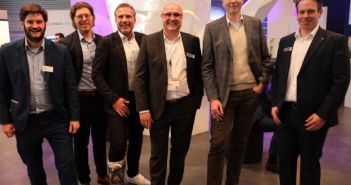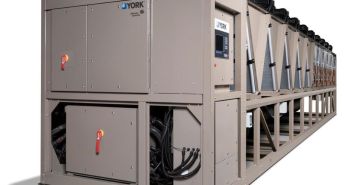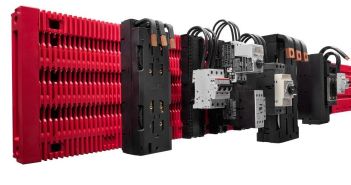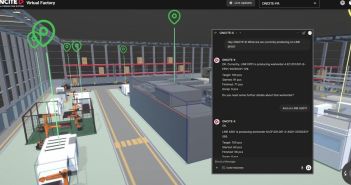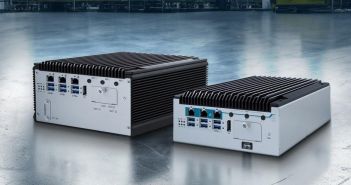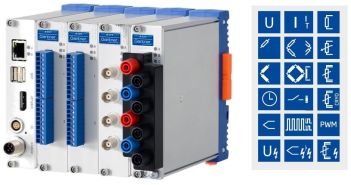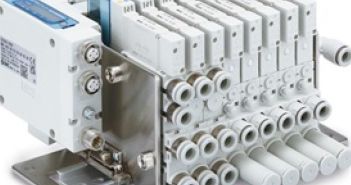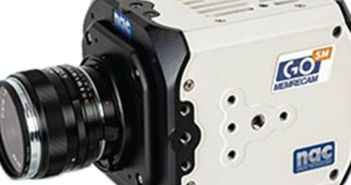During pregnancy, regular medical check-ups are crucial for monitoring the health and development of both the mother and the baby. However, conventional examinations only provide snapshots of the condition and require frequent visits to the doctor, especially in high-risk pregnancies. To enable convenient and continuous monitoring during this sensitive period, an international research consortium is planning to enhance the technology of Smart Textiles. Equipped with sophisticated electronics, a patch will collect and analyze vital data. Furthermore, the sensors will be integrated into baby clothing to improve the future of medical monitoring for newborns with the highest level of data security.
Table of Contents: What awaits you in this article
Continuous Monitoring During Pregnancy Made Easy with Smart Textiles
Continuous medical checks during pregnancy are crucial for monitoring the health of the expectant mother and the development of the child. Traditional examinations provide only snapshots and require frequent doctor visits, especially in high-risk pregnancies. However, there is now an innovative solution that allows for convenient and continuous monitoring during this sensitive phase. An international research consortium is planning to advance the technology of smart textiles to enable a permanent birth medical monitoring in everyday life.
Innovative Patch technology for continuous monitoring during pregnancy
The consortium of 25 partners aims to develop a biocompatible, stretchable, and flexible patch for continuous monitoring of pregnancy progression and embryo development. Similar to a regular adhesive patch, this patch will be applied to the skin of the pregnant individual and utilize miniaturized sensors, such as ultrasound, to constantly record vital data. The recorded data will then be transmitted via Bluetooth to a compatible device, such as a smartphone, for further analysis and monitoring.
Modern Medtech: Comfortable Home Monitoring with Smart Textiles
The Fraunhofer Institute for Reliability and Microelectronics IZM, led by Christine Kallmayer, is pioneering the application of Smart Textiles and intelligent wearables in modern medical technology. By integrating these technologies into flexible materials, the team is able to leverage their extensive experience to provide patients with a comfortable and continuous home monitoring solution. Using thermoplastic polyurethane as the base material, the researchers embed electronics and sensors into an integrated patch, ensuring a user experience similar to that of a conventional adhesive bandage, rather than a rigid film.
Innovative Ultrasound Sensors Integrated into Flexible Material for Discreet Birth Monitoring
The project consortium aims to make birth medical monitoring seamless and comfortable for pregnant women and their unborn babies by incorporating innovative MEMS-based ultrasound sensors directly into the PU material. These miniaturized sensors collect data through direct contact with the skin. Stretchable TPU material is used to transmit the information to the evaluation electronics and ultimately to a wireless interface, allowing doctors and midwives to view all relevant data in an app. In addition to ultrasound, the researchers also plan to integrate other sensors such as microphones, temperature sensors, and electrodes.
Newlife’s Integration Technology Enables Remote Monitoring for Newborns
The integration technology developed by the Newlife team has the potential to revolutionize postnatal medical monitoring. By incorporating sensors for continuous EKG, respiratory monitoring, and brain activity observation through infrared spectroscopy, this technology can be seamlessly integrated into the soft fabric of baby clothing such as bodysuits and hats. This remote monitoring system offers a valuable alternative to traditional hospital stays and wired monitoring for premature babies and infants with health risks. The smart textiles used in this system provide unmatched comfort, with no noticeable electronic components, while also ensuring durability through multiple wash cycles.
Cloud-based Solutions and AI Enhance Monitoring of Infant Health
The Newlife project aims to explore the potential of using camera data and sensors in baby beds to gather information about the health and well-being of infants. Once the hardware foundation of the patch, textile electronics, and sensor bed is established and tested, the project partners will leverage cloud-based solutions to enhance the application for medical professionals. This integration of artificial intelligence and machine learning will not only streamline the monitoring process but also ensure the highest level of data security.
The Newlife project, coordinated by Philips Electronics Nederland B.V., is set to run until the end of 2025. With a total funding of â¬18.7 million from the European Union under the Horizon Europe program (Grant Number 101095792), this project aims to advance the development of innovative technology.
Continuous monitoring during pregnancy and after birth is crucial for ensuring the safety and healthy development of the mother and child. The Newlife project aims to revolutionize birth medicine monitoring by developing smart textiles embedded with miniaturized sensors. These biocompatible, flexible patches can be attached to the skin and record vital data, which is then transmitted wirelessly to healthcare professionals. This innovative technology offers a comfortable and convenient solution for monitoring high-risk pregnancies and newborns, providing real-time data for early detection and intervention.
The Newlife project and the development of Smart Textiles offer numerous benefits for birth medical monitoring during pregnancy and postpartum. By integrating miniaturized sensors into patches and baby clothing, continuous and comfortable monitoring is made possible. The use of flexible materials ensures a pleasant wearing experience, while data is transmitted wirelessly to doctors and midwives through a wireless interface. Remote monitoring is particularly valuable for high-risk pregnancies and infants with health concerns, providing a viable alternative to hospital stays. Cloud-based solutions further facilitate the application for medical personnel and ensure the highest level of data security. The Newlife project significantly contributes to improving the medical monitoring of mother and child.



